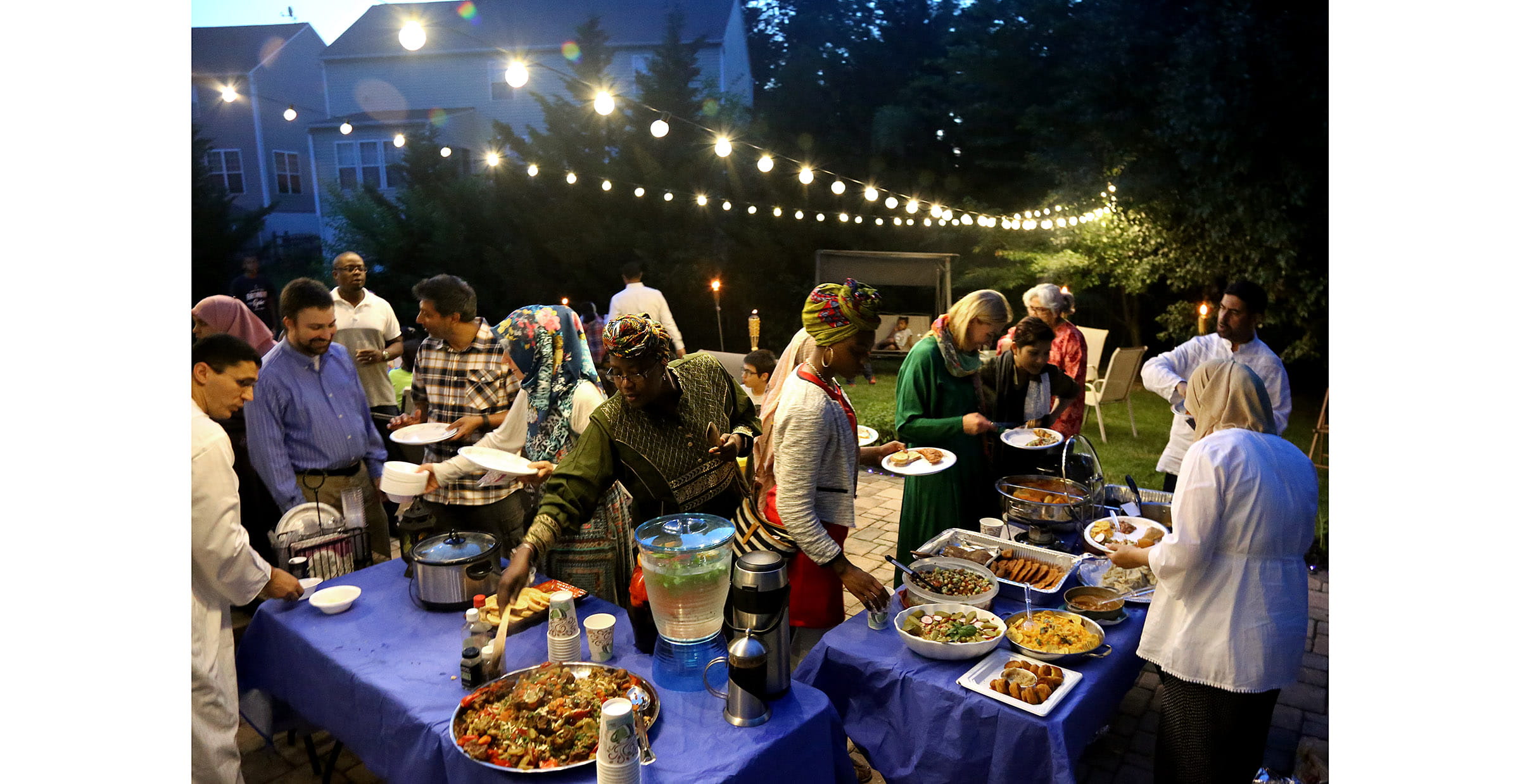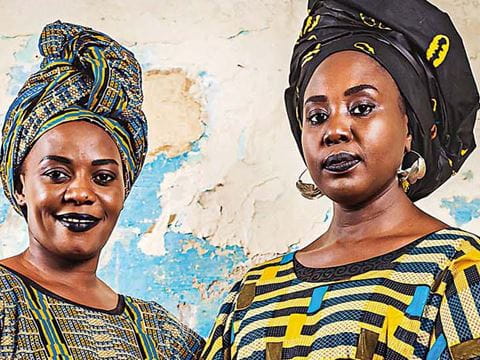
FirstLook: Iftar Nights
Iftar means “fast breaking” in Arabic, and the socializing, sharing and community that goes along with it is a worldwide hallmark of the month of Ramadan.
Iftar nights
Sunday, June 26, 8:42 p.m.,
Howard County, Maryland
We dug in, as we always do, just moments after sunset, as soon as it was time to break this day’s 16-hour Ramadan fast. As cell phone apps played calls to prayer in near synchrony, a small, hungry crowd descended upon the buffet table.
On this night it was a potluck iftar with a heri-tage theme, and the food mirrored some of the incredible diversity of suburban Baltimore itself: There was Malaysian tapioca cake (bingo ubi kayu), Ecuadorian empanadas, Bosnian stew (Bosanski lonac), Uighur steamed squash and lamb dumplings (petir manta), Italian escarole and beans (scarola e fagipoli), African- American bean pie, Senegalese peanut stew (mafe ginaar) and beignets (puff puff), Palestinian lentil soup (shorabit adas) and St. Thomas jerk chicken—all shared along with stories of their origins among friends old and new.
Iftar means “fast breaking” in Arabic, and the socializing that goes along with it is a worldwide hallmark of the month of Ramadan, which this year began on June 6 and ended with ‘id al-fitr (“feast of the fast breaking”) on July 5. (Following US Independence Day, this gave us a delightful double holiday.) In an upcom-ing feature article, I’ll be sharing some of the recipes you see on this table.
—Laila el-Haddad, author of
“Gaza’s Food Heritage” (N/D 11)
Sunday, June 26, 8:42 p.m.,
Howard County, Maryland
We dug in, as we always do, just moments after sunset, as soon as it was time to break this day’s 16-hour Ramadan fast. As cell phone apps played calls to prayer in near synchrony, a small, hungry crowd descended upon the buffet table.
On this night it was a potluck iftar with a heri-tage theme, and the food mirrored some of the incredible diversity of suburban Baltimore itself: There was Malaysian tapioca cake (bingo ubi kayu), Ecuadorian empanadas, Bosnian stew (Bosanski lonac), Uighur steamed squash and lamb dumplings (petir manta), Italian escarole and beans (scarola e fagipoli), African- American bean pie, Senegalese peanut stew (mafe ginaar) and beignets (puff puff), Palestinian lentil soup (shorabit adas) and St. Thomas jerk chicken—all shared along with stories of their origins among friends old and new.
Iftar means “fast breaking” in Arabic, and the socializing that goes along with it is a worldwide hallmark of the month of Ramadan, which this year began on June 6 and ended with ‘id al-fitr (“feast of the fast breaking”) on July 5. (Following US Independence Day, this gave us a delightful double holiday.) In an upcom-ing feature article, I’ll be sharing some of the recipes you see on this table.
—Laila el-Haddad, author of
“Gaza’s Food Heritage” (N/D 11)
You may also be interested in...

The Lost World Of Southern Iraq's Marsh Arabs
History
Arts
In late 1967, photographer Tor Eigoland traveled for more than: a month, mostly by canoe, among the countless villages of southern Iraq's vast marshes. Now, 45 years later, writer Anthony Sattin calls his photographs a "rare and ethnographic record of a lost world. They bring us back to a time and place where people lived in harmony with their environment and respected the balance the natural world needs to thrive.'
FirstLook: Poetic Fusion
Arts
Prior to our modern practice of image manipulation with editing software, photographers worked more with planned intention and craft.
"Duet": Senegalese Double Portrait
Arts
“Duet” comes from the Latin root word duo which means two. The Duet series focuses on double portraits, a tradition in West Africa.